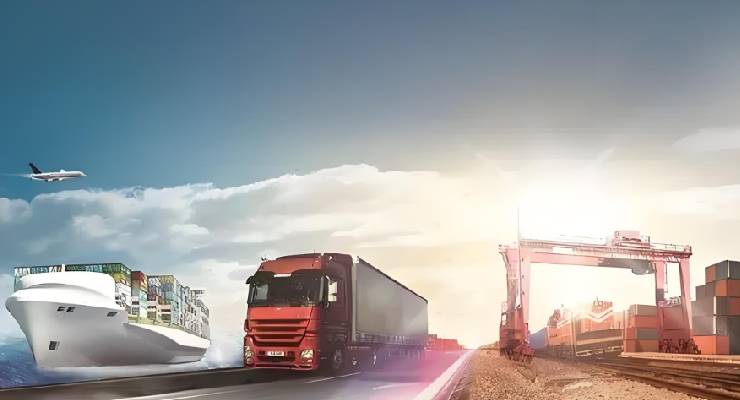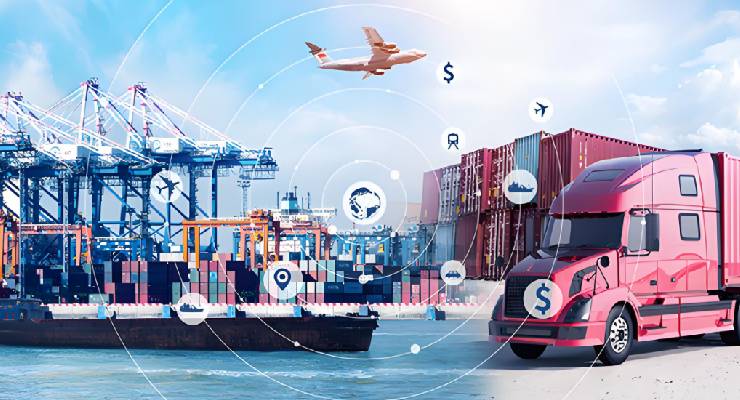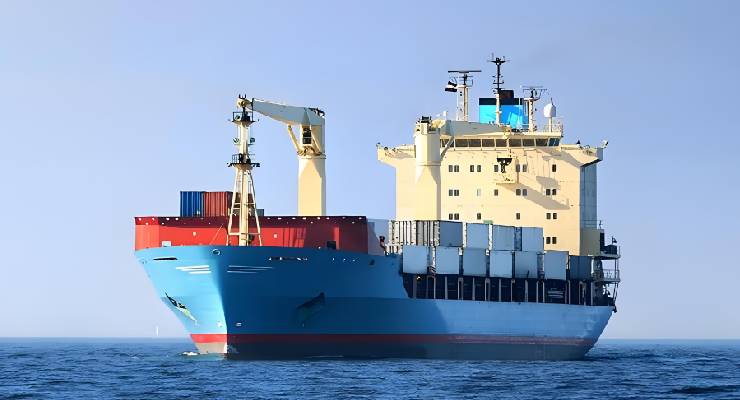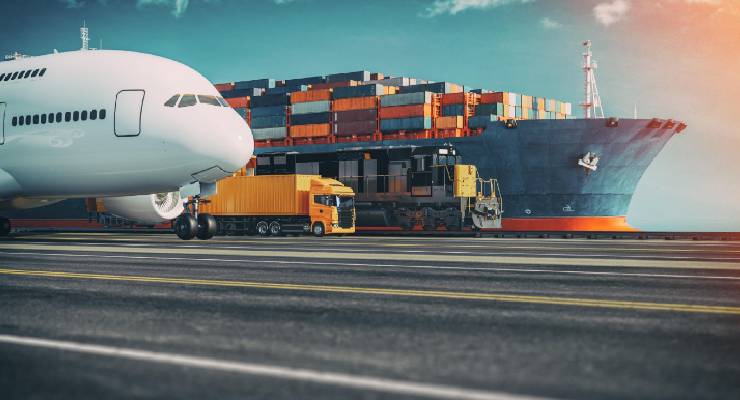
With the development of network information technology, more and more people like to shop online, which makes online shopping become a popular trend. This has also made the logistics industry at home and abroad explosive growth. Today, I'm going to talk to you about what international logistics is.
What is international logistics
International logistics, also known as global logistics, refers to the realization of the goal of international commodity trading in order to overcome the spatial distance and time distance between production and consumption, that is, the seller's delivery of documents, international commodity trading or the exchange of goods collection activities; The buyer accepts the documents, pays for the goods and receives the goods under the terms of trade flow.
The broad international logistics research includes the scope of international trade logistics research, non-trade logistics, international logistics investment, international logistics cooperation, international logistics exchanges and other fields. Among them, international trade logistics mainly refers to the reasonable international flow of goods; Non-trade logistics refers to international exhibition logistics, international postal logistics and so on. International logistics cooperation refers to the international logistics for enterprises from different countries to complete major international economic and technological projects. International logistics investment refers to international logistics enterprises in different countries. International logistics exchanges mainly refer to logistics science, technology, education, international training and management exchanges.
Second, the basic process of international logistics
1. Order processing
Where the importers and exporters have concluded a formal contract through negotiation, the processing of orders is related to the arrangement for the performance of the contract.
2. Transportation and insurance
In order to ensure the economic security of international logistics, both importers and exporters should reasonably choose freight routes, modes of transport, means of transport, and the risks of transporting goods.
3. Tally goods
Tally refers to the cargo owner in accordance with the contract of transport at the loading and unloading port to receive the goods entrusted by the port tally agency to complete the cargo count, check the damage of the cargo, guide the cabin loading, make relevant documents, etc.
4. Customs declaration for scopolamine inspection
Import and export goods must pass through the place where the Customs is located or exit the country. The consignee or his agent for import goods shall, within 14 days from the date of declaration of the means of transport, and the consignor or his agent for export goods shall, within 2 hours before loading, truthfully declare to the Customs and accept the supervision of the Customs. Late fines and late fees.
5. Payment
After the goods are shipped, the beneficiary shall make the order in time and deliver it to the bank within the period of validity and delivery specified in the letter of credit. Upon receipt of the transaction order, the negotiating bank shall examine it in accordance with the requirements of the L/C, and inform the beneficiary of the audit result within 7 working days after receipt of the documents.
The essence of international logistics is to realize the international flow and exchange of goods in accordance with the principle of international division of labor and international practice, and to promote the development of regional economy and the optimal allocation of world resources. The overall goal of international logistics is to serve international trade and transnational operations, that is, to choose better ways and routes to transport goods from suppliers in one country to the demand side in another country in a timely manner, at very low cost and risk.

Conclusion
In the tide of international logistics, freight forwarding industry plays a vital role. With the in-depth development of globalization and the rapid progress of information technology, the international freight forwarding industry is facing unprecedented opportunities and challenges.
The international freight forwarding industry is in a critical period of innovation and breakthrough. Through the deep integration of intelligent technology, the advocacy and practice of green logistics, the innovation and expansion of personalized service, the deepening and expansion of cross-border cooperation, as well as talent training and team building and other efforts, freight forwarding enterprises can continuously improve their competitiveness, respond to market challenges, and achieve sustainable development of the industry. In the future, with the continuous progress of technology and the constant changes of the market, the international freight forwarding industry will continue to maintain the pace of innovation and breakthroughs, and contribute more to the development of the global logistics industry.
-
 A Comprehensive Guide to Refrigerated ContainersJun 17,2025
A Comprehensive Guide to Refrigerated ContainersJun 17,2025 -
 Guide to 20ft & 40ft Shipping Container Dimensions for Global LogisticsJun 17,2025
Guide to 20ft & 40ft Shipping Container Dimensions for Global LogisticsJun 17,2025 -
 How to track shipments sent from ChinaMay 13,2025
How to track shipments sent from ChinaMay 13,2025 -
 Guide to Importing and Shipping Cars from China to UAEMay 13,2025
Guide to Importing and Shipping Cars from China to UAEMay 13,2025 -
 Guide to Importing and Shipping Camping Gear from ChinaMay 07,2025
Guide to Importing and Shipping Camping Gear from ChinaMay 07,2025 -
 Shipping from China to YemenMay 06,2025
Shipping from China to YemenMay 06,2025

